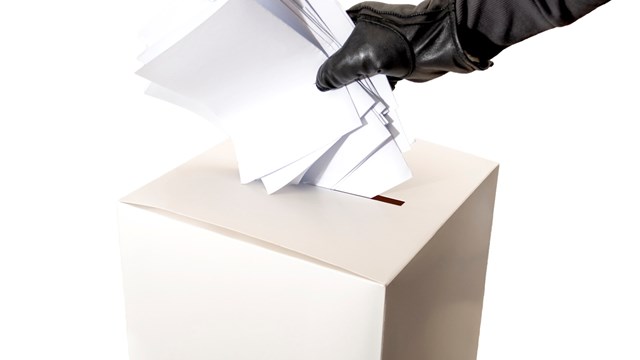When purchasing a residence in a condominium, homeowners association or a co-op, you by default agree to reside in a community association. You live in relatively close proximity to your neighbors and equally share the right to utilize common areas, whether it’s a lobby, pool, gym, parking lot and/or clubhouse. Monthly association dues fund shared costs such as insurance, landscaping and security, among various other expenditures. This requires following a set of basic norms and agreeing to abide by an association’s ‘playbook,’ if you will.
Associations = Governmental Microcosms
Similar in principle to the United States Constitution and statutes enacted by state and local governments, an association is governed by formalized restrictions, covenants and rules within the association’s governing documents. The governing documents, including the association’s rules and regulations, are enforced by the association’s elected governing body, a board of directors whose responsibility is to oversee and manage a multitude of functions on behalf of owners/members and residents.
In stark contrast to the attempted coup on January 6, 2021, when an armed mob stormed the United States Capitol and attempted to forcibly overturn the election result in favor of the losing candidate, elections within community associations, even those that are contentious, are intentionally structured to ensure the transition of power follows measured procedures, a strict timeline, and happens peacefully.
The association’s governing documents should adhere to state statutes, and include provisions which dictate strict procedures and protocols for elections, as well as for appointment and removal of members of the board of directors.
Contesting or Recalling Election Results
The board of directors are duly elected by owners during an association’s election, typically annually or biannually, and serve for a term as specified within the association’s governing documents and bylaws. If a member desires to challenge the results from an association’s election, there are procedures/remedies in place in applicable law. (For example, in Florida, where our practice is located, in the event of an election dispute, one has 60 days to file a petition for arbitration with the Department of Business and Professional Regulation to challenge the election results. Other states have their own deadlines and governing agencies.)
Regardless of your location, the primary consideration in an election contest is whether the will of the people has been affected. Perfection is not required, rather, the standard that must be met is one of substantial compliance. As such, not every error or irregularity in the process is necessarily detrimental to an election. In determining the effect of errors or irregularities on the validity of an election, the following factors are considered:
- The presence or absence of fraud, gross negligence, or intentional wrongdoing
- Whether there is substantial compliance with the essential requirements of voting law
- Whether the irregularities complained of adversely affect the sanctity of the ballot and the integrity of the election
Aside from challenging an election, if unit owners are dissatisfied with the performance of their sitting board members, state law may provide that a director may be removed with or without cause by the majority of the voting interests in a process referred to as a recall. The recall process itself contains specific procedural requirements that must be complied with or be subject to challenge. In Florida, for example, recalls may be approved by a vote at a meeting, or may be accomplished by agreement in writing, the latter being the most common method. If the recall is by an agreement in writing, it is required to be served on the association by certified mail or process service. Upon receipt of same, the board of directors has 5 business days to hold a meeting, where such member or members subject to the recall are recalled effective immediately upon the conclusion of the board meeting. A recalled member must turn over to the board, within 10 full business days, any and all records and property of the association in their possession.
Further, in an effort to avoid a holdover, the Florida statute provides that where a board fails to duly notice and hold this board meeting within 5 business days after service of a recall agreement in writing, or within 5 business days after the adjournment of the unit owner recall meeting, the recall is deemed effective. Accordingly, the Statute contemplates the possible situation of a board that refuses to step down.
The statutory provisions governing recalls also dictate who gets to fill vacancies created by the recall. If the vacancy occurs as a result of a recall or removal and less than a majority of the board members are removed, the vacancy may be filled by the affirmative vote of a majority of the remaining directors. On the other hand, if the vacancy occurs and a majority or more of the board members are removed, the vacancies are filled by conducting a recall election.
Of course, the recall process itself is subject to challenge in a similar manner as the election process, requiring that a board member who has been recalled file a petition challenging the validity of the recall within 60 days after the recall, naming the association and unit owner representative as respondents.
It is important to distinguish that a director can only be removed by a proper recall. However, officers such as the board president or vice president, who generally are voted upon by the Board after the election of directors, and are generally directors (but not always), may be stripped of their officer position by a majority vote of the board at a properly noticed and agenda’d board meeting.
These rules were constructed to offer due process and remedy any contradictory election results. Serving on a board is a privilege, but it is a voluntary position and most serve honorably throughout their term. One need not breach the walls of the community room or storm into a board meeting to challenge election results. There are more civil and productive alternatives. It is also highly recommended that a community association have its counsel present during all board elections, whether they are held in-person and/or electronically.
Alessandra Stivelman is a partner at Eisinger Law, a multi-practice Florida law firm focused on community association law, real estate law, developer representation, civil/commercial litigation, insurance law, estate planning and probate. She focuses her practice on community association and real estate law. Carolina Sznajderman Sheir is also a partner at the firm, and focuses her practice on real estate law, community association law, commercial litigation and developer representation.










Comments
Leave a Comment